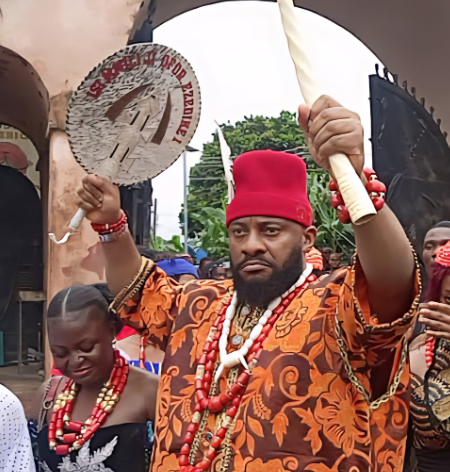If You’re Facing Rejection on Foreign Soil, It’s a Sign to Return Home – Actor Yul Edochie Tells Ndigbos

Nollywood actor Yul Edochie has recently made a heartfelt appeal to the Igbo people, urging them to return to their homeland in the South East of Nigeria and invest in its development. His message comes amid growing concerns about the challenges many Igbos face while living abroad, including experiences of rejection and marginalization.
Edochie emphasized that encountering rejection on foreign soil should not be met with hostility or bitterness. Rather, he views it as a clear sign that it’s time to come back home and contribute to the growth and progress of the Igbo region. According to him, the Igbo community has wandered away from their roots for far too long, and the time has come to heed the call of their ancestors and spirits to return and build their homeland.
“Beat the Pressure: A Comprehensive Guide to Lowering Blood Pressure Naturally.”
Buy book from Gumroad or Paystack
In his words:
“Ndi Igbo come back home and invest in Igbo land.
If you’re facing rejection on foreign soil, it’s not a sign to fight anybody, it’s a sign to return home.
We have wandered for too long.
Home is calling.
Our ancestors and spirits in Igbo Land are calling us to return home and develop home.
A new dawn has come in Igbo land.
It’s time to return home.
Ana amalu mma si na uno wee puo ilo.”
Yul Edochie’s appeal touches on deep cultural and socio-economic issues. The Igbo people are known for their industrious nature and entrepreneurial spirit, yet many have historically sought opportunities outside Nigeria, particularly in Western countries. Unfortunately, some have faced xenophobia, discrimination, or difficult living conditions abroad, which can be disheartening.
By encouraging a mass return, Edochie is advocating for tapping into the untapped potential of the Igbo diaspora to stimulate economic growth, create jobs, and foster community development in their ancestral lands. This call aligns with a broader narrative of regional empowerment and self-reliance, which many African communities are exploring as a way to overcome systemic challenges.
The actor’s message has sparked mixed reactions. Supporters applaud the call for unity and homecoming, seeing it as a positive step toward regional advancement. Some have pointed out that if the Igbo people consolidate their efforts and resources back home, they can wield significant economic and political influence within Nigeria and beyond.
However, critics caution that the idea of returning en masse is not without challenges. Issues such as regional security, infrastructural deficits, and political dynamics must be addressed to make the South East an attractive destination for returnees. Furthermore, some fear that without unity and strategic planning, the return could exacerbate existing tensions or lead to economic strain.
Despite the debates, Yul Edochie’s message resonates with a growing sentiment among many Nigerians who wish to see their regions flourish from within. It underscores the importance of investing in local economies, preserving cultural heritage, and building a future where the diaspora can reconnect meaningfully with their roots.
In conclusion, Yul Edochie’s call to the Ndigbo to return home if faced with rejection abroad is more than just a personal opinion; it is a rallying cry for empowerment, development, and reclaiming identity. It challenges the Igbo people to reconsider where their future lies and how best to harness their talents and resources for the advancement of their homeland. The success of such a movement, however, will depend on collective action, visionary leadership, and a conducive environment that welcomes and supports returnees in their quest to build a prosperous Igbo land.
💔 “She said she loved me. And for fifty-two years, I believed her.” 💔
Buy The Book "The Longest Lie: A Husband’s Journey Through Love, Betrayal, and Redemption" From Gumroad






